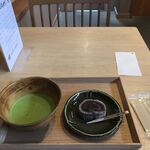
上林春松本店
Kambayashishunshouhonten ◆ 上林春松本店 直営小売店
3.22
Uji, Ujitawara
「store」
--
--
Opening hours: 9:00~ Business hours
Rest time: are subject to change, so please check with the store before visiting.
京都府宇治市宇治妙楽38
Photos
(20)

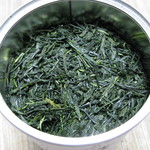
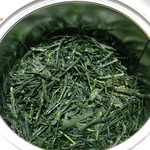
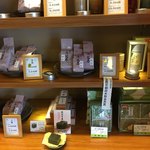
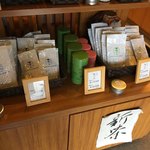
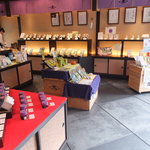
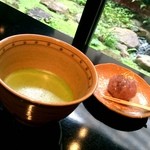
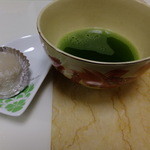
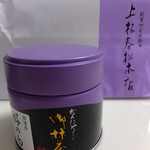
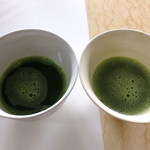
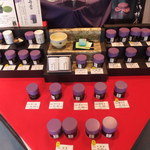
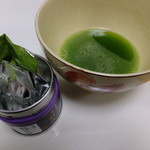
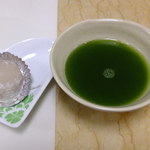
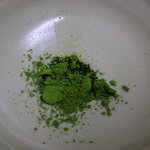
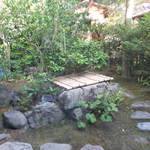
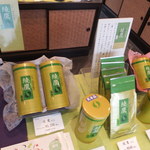
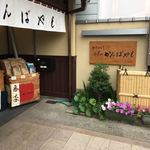
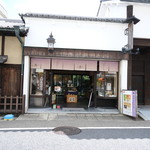
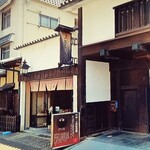
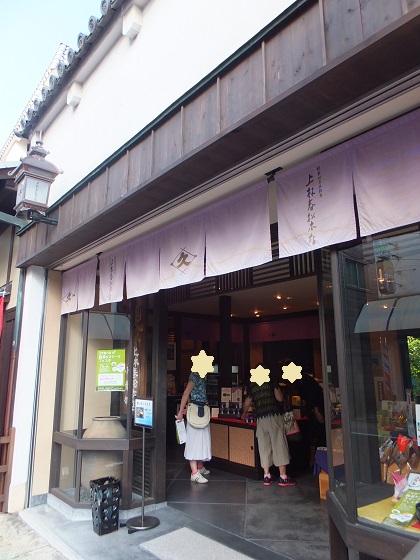
Details
Payment Method
Cards accepted
(JCB, AMEX)
Number of Seats
7 seats
Smoking and Non-Smoking
No smoking at the table
Parking
None
When parking at "Super Natsuka Ujibashi-dori Parking", 30 minutes service is available when purchasing goods.
Facilities
Calm space
Comments
(17)
アルルカンベア
3.40
◆Kamibayashi Shunsho Main Store Uji Kyoto Solo Trip Day 1❷
The "Kamibayashi Shunsho Main Store," known for producing "Ayataka," has a history of 450 years since its establishment during the Eiroku period of the Muromachi era by Kamibayashi Shunsho, a prestigious tea shop in Uji that has been involved in Uji tea production and tea culture since the late 14th century, supported by the Ashikaga Shogunate. You can visit the memorial hall of the 14th generation descendant of the prestigious Uji tea master for an entrance fee of 200 yen to confirm the proof of the history they have engraved.
◆Matcha Set 660 yen including tax
You can enjoy it in a corner of the retail store, and the small garden is nice. The matcha has a refreshing taste within its bitterness, similar to the richness and sharpness of beer. I wanted to hear more about the details of the matcha from the staff, but it was served without explanation. The accompanying confection is the "Kinu Honoka" with red bean paste from the Kyoto confectionery "Kotsuki," which is not bad, but the attention to detail other than matcha is lacking a bit.
●Additional Note
One thing that caught my attention is the proliferation problem of "Kamibayashi" in Uji. It is confusing to see multiple stores with the same name "Kamibayashi" in Uji. It was a bit perplexing. When you visit Uji, you will understand. Established in the late Edo period, the tea shops like Nakamura Toyoji and Ito Kyuemon seem to be more skilled in promoting tourism and retail in Uji and stand out more. I hope that even the established prestigious tea shops will do their best. It was a satisfying experience.
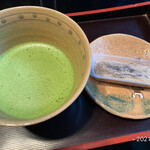
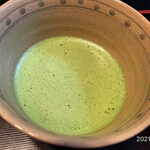
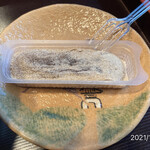
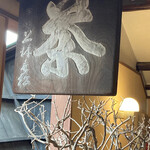
tokamyama
3.50
This time, I visited Uji City to see the Byodoin Temple. It is located along the shopping street from JR Uji Station to the Byodoin Temple. This shop also has a museum attached (admission fee of 200 yen). This time, I purchased a covered tea caddy for home use. They also have new teas available, so you can choose your favorite tea.
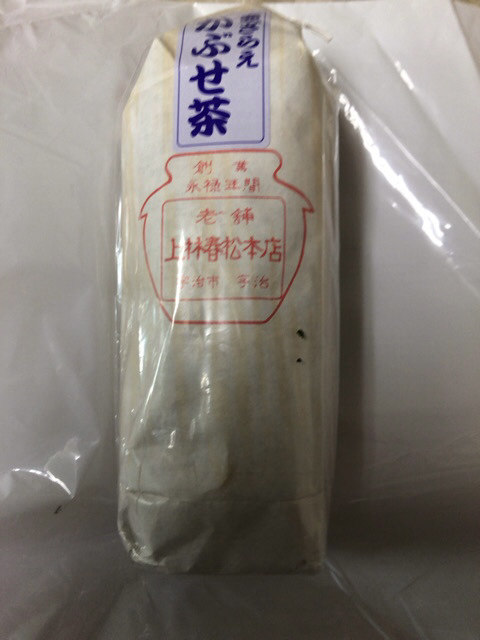
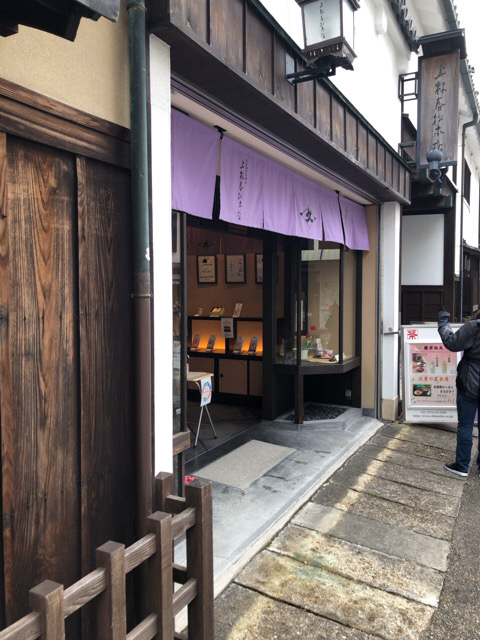
なおくん917
3.70
You can feel the beauty of Japan and enjoy the culture through the atmosphere of this place. Matcha offers a taste for adults, allowing you to fully experience the atmosphere of Kyoto. This matcha not only satisfies your taste buds but also engages all your senses. Japanese culture is beautiful, and you can feel that through this matcha.

たけちゃんぱぱ1965
3.50
I visited Uji to find tea as a gift for someone who has helped me. I decided to visit Ujibayashi, which has a bit of a traditional feel. As I entered the shop, I was greeted by the lovely aroma of tea, which is the scent of the town of Uji. I was looking for a specific tea when I was offered a sample of the new tea. It was slightly warm and had a sweet taste, very delicious! I learned more about the tea, which costs around 1,000 yen for 100 grams. I decided to buy this tea for myself and chose a higher grade tea for the gift. There are so many different types of tea with varying prices, it was a great learning experience. The staff were also serving foreign customers, making it an international shop.

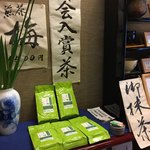


委員ちょ
3.80
I went out to buy new tea this year and headed to Uji. I arrived at the Kamirin Shunsho Matsumoto store around 9:30 and went inside to look for tea leaves. I wanted to try the "Kyuju" (1000 yen), which was not too cheap or too expensive, but they didn't have it. They did have the "Tsurezure" (1200 yen), so I tried it. The flavor was richer than the tea I usually drink, with a good balance of astringency. I wondered if I could brew it as deliciously at home, but I ended up buying two, including one for my relatives.
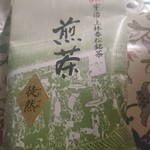
dsktnk
4.20
"Ayataka" is a familiar name... "Kamirin Shunsho", a long-established tea shop in Uji with a history of 450 years. Despite being influenced by historical figures such as the Ashikaga, Oda, Toyotomi, and Tokugawa families, they have preserved the traditional culture of Japanese tea and have been forced to innovate due to their position as the official tea master for the shogunate family. The Kamirin family, which led the Uji tea industry as the "Sakadoori", is a unique shop located within a 10-minute walk from Uji Bridge. Sometimes, when having a meal, I can't help but blurt out, "Tea is the best," but unfortunately, once it goes down your throat, the emotional attachment fades away. I usually gulp it down, preferring cold tea with a refreshing taste and a hint of sweetness, but I have no experience in tea ceremonies and never really thought of tea as something special. It was too familiar to me, and now I realize it was like a blind spot. A few years ago, I suddenly thought while drinking tea. Even if tea is the best, what is the best tea for me? This made me question the limited choices of bottled teas I usually drink and the cost-effectiveness of commercially available teas in this area. I started demanding better tea at home, and surprisingly, a friend who was also interested in tea confessed with a smug face that he was in the tea ceremony club in high school. Taking advantage of this, I gradually loosened the purse strings and successfully established tea as a hobby at home. However, finding the best tea for myself was not as easy as it seemed. The tricky part was that the taste varied depending on the amount of tea leaves used and the brewing method. Some teas opened up and tasted better from the second steeping. Furthermore, many teas are blended, making it difficult to determine what criteria to use to seek deliciousness. Nevertheless, even though the taste may vary depending on the brewing method, the correct answer as to where the tea comes from seemed surprisingly high, and it appeared that personal preferences were determined by the assertive aroma, taste, and color. However, I didn't want to encounter teas that were so bad I couldn't drink them (laughs). Most teas were delicious, which was also troublesome, as it didn't help me figure out what I really liked. The journey of self-discovery continued without a clear answer (;´д`) So, in the end, I started focusing on which teas I wanted to drink, and I found myself gravitating towards Gyokuro purchased here. Mizuka and Mizumi are in the 2000 yen range for 100g, so they are not extremely expensive, and there are many Gyokuro teas in this price range, making it easy to compare with other teas. It doesn't have an assertive or unusual taste, and it's just easy to drink. It has a refreshing taste, a hint of sweetness, and a good aroma of tea leaves. I haven't tried it, but it seems like it would be good chilled for a refreshing gulp down (laughs)."
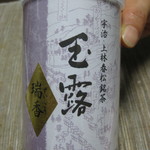

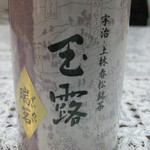

京夏終空
4.60
Uji tea, matcha, and gyokuro specialty store in Kyoto. I feel compelled to write a review about it. I also posted about Yurisakuraen with Kyoto hojicha. I visited this store a long time ago. Actually, I visited it a few times when I was a child. This is because my grandmother used to have tea from this store at home. However, in my memory, it was not just regular green tea, but matcha and gyokuro. So, for me, that's the only approach I can take. I also mentioned in my Yurisakuraen review that when it comes to green tea, I think Shizuoka and Yame teas are the best. I'm not really knowledgeable about the history or production methods of tea. This review is also fueled by anger. Stores like Itoen, Tsujiri, and Fukujuen are praised, while this lesser-known "Joan Harumatsu" is being overlooked. My senior, Mr. Murata, seems to understand this well... There is a unique matcha called "Sobogashi" here. It only contains about 20g in a can, and it costs around 2,000 yen. Although it's not the official reading, we call it "babacha" in our house. It is a tea with a long history. I can't really compare it to others, but it's simply a tea that allows you to appreciate the quality and elegance of tea. There is also a gyokuro called "Gyokusui." When I see the price now, I'm surprised at how expensive it is. It seems to be vacuum-packed now, but in the past, it was also in a can. It is quite delicious, but looking at the price, it seems out of reach for the average person. This gyokuro goes well with sushi. People have different preferences for tea with sushi, but for a brief period in my childhood (around middle school age), I was hooked on this tea. Maybe the can was the same, but the rank was slightly lower. However, the vivid memory of this gyokuro pairing well with sushi remains in my mind. I may be disqualified as a reviewer, but I can't write much about this store now. I just remember that it was treated as superior to other Kyoto teas in the household. In my Tokugawa-supporting family, being the shogun's favorite was all that mattered, but... I might have just uploaded this review without much purpose. Well, that was my intention. The rating with only 5 reviews is "3.07"... Nakamura Tokichi has 415 reviews and a rating of "3.62"... The difference, the meaning, the taste, all of it is beyond my comprehension. It's truly frightening how the media works. (By Kyonatsu Shukku, 2017.2.15) (3.07/2018.1.21) (*Photos will be posted later.)

mforce
0.00
If you walk straight along the Uji Bridge over the Uji River, you will find this place relatively far from the bridge. It can get crowded near the Uji Bridge with famous cafes and the entrance to Byodoin Temple's approach, but it's quieter around here. I was able to enjoy tea and receive advice while shopping slowly. On this day, I bought coarse tea. I can't say for sure about the quality and price compared to other places, but there's a sense of being there. There was a seat where you could have matcha. I didn't try it, but it was available and seemed easy to use.
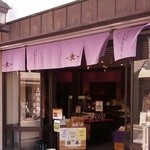
★カプチーノ
4.40
I visited Uji in June and we decided to stop by a charming looking tea shop with two friends. The shop was bustling with activity. It was the Kamibayashi Shunsho Hompo, a 450-year-old traditional tea shop in Uji. The current owner is the 14th generation of Kamibayashi Shunsho. The shop had a tea room in the back with a small garden. The staff immediately offered us a warm sample of "Ayataka" tea to try, which was delicious. We then visited other tea shops in the area before returning to Kamibayashi Shunsho Hompo to purchase some matcha tea. The matcha tea was rich and flavorful, and we enjoyed comparing it to other teas we had tried. I found that the matcha from Kamibayashi Shunsho Hompo was stronger and had a cleaner aftertaste compared to other brands. I will cherish this special tea and only drink it on holidays. Uji is a charming town with many historic tea shops where you can enjoy high-quality tea at reasonable prices. I fell in love with Uji during my visit in the spring and look forward to returning in the fall to see the autumn leaves.




chokko
3.00
On a Sunday afternoon, I went with my best friend to try the seasonal limited edition product, Shincha. It is a type of sencha, but when brewed properly, it has a sweet and savory taste similar to Gyokuro, making it very delicious. There are many branches of the Ujibayashi family, so there are numerous tea shops in Uji with the name Ujibayashi. We tried samples at several of these shops, but I liked this tea the best. Since it's the season for Shincha, I bought some to take home for myself. I will do my best to brew it as deliciously as the staff at the shop!
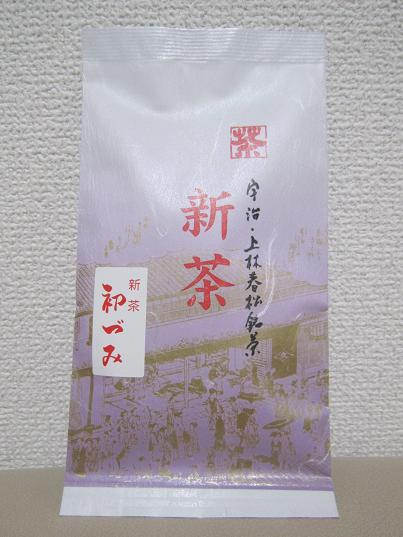
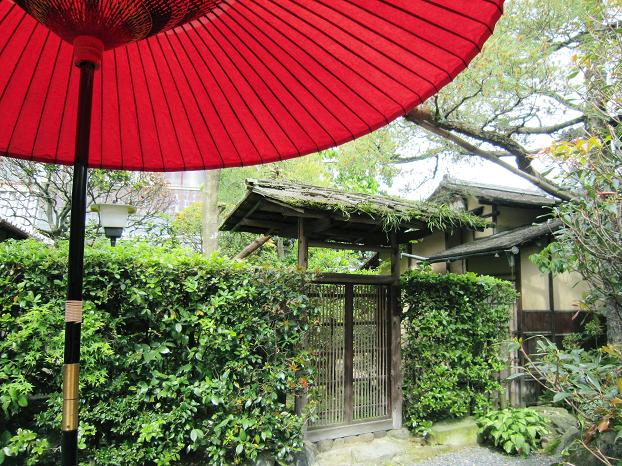
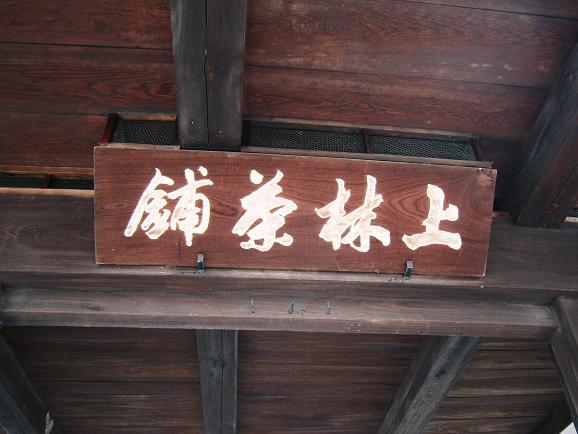
ingridb
3.50
In the latter half of the 14th century, the Ujibashi family flourished as "master tea makers", and although the Uji tea industry was once in crisis, it was revived with the spread of tea ceremony to the public by the Toyotomi and Tokugawa families, becoming a representative of Uji tea. I visited the shop run by the Ujibashi family, called "Ujibashi Harumatsu Honpo". Even if you don't know the name of this shop directly, you would recognize it as the tea shop for "Ayataka". The shop is located on the southwest side of Ujibashi, along Ujibashi Street. I went to the shop by car, but there was no parking lot. When I asked the staff, they said, "You can park at the adjacent memorial hall." Oh, that's so kind. But since the staff said it was okay, I drove into the gate and entered the shop. The shop was opened two years ago, and there is a small space at the back where you can have tea (there is also a space inside the memorial hall). There, I had a set of sweets and matcha (\630). The sweets were made of mochi rice flour mixed with mugwort and wrapped in sweet bean paste. It wasn't a surprising taste, but the matcha that accompanied it was a big hit. After eating the sweets, when I drank the matcha, I first tasted the sweetness of the tea, followed by bitterness and umami. Each flavor stood out but balanced each other, making it very delicious. Truly amazing. Some people may not find it impactful, but in my opinion, it might be the best matcha I've ever had. The staff at the shop were also very kind. Since they allowed me to park my car, I took the opportunity to visit the memorial hall as well (entrance fee \200). I visit tea shops occasionally, but it was my first time visiting a tea museum, so I found it quite interesting.
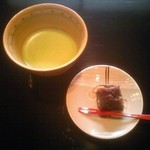
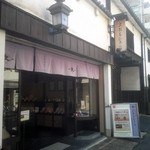
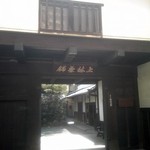
まなちん
3.80
Founded during the Eiroku era, this shop is a long-established tea shop in Uji with a history of 450 years, which opened its doors in March last year. Located along Uji Hashi Street, this old shop in Uji, which has prospered under the strong protection of the third shogun of the Ashikaga shogunate, Yoshimitsu, has recently been making new attempts, such as selling bottled tea under the "Ayataka" brand by Coca-Cola. In addition to selling tea inside the store, there is a tea-serving area overlooking a small garden where you can enjoy tea and sweets. During a weekday business trip, I decided to buy some reasonably priced roasted tea for home use and also enjoy matcha in the store. There is a simple tea-serving area with a seat and table covered with a scarlet carpet in one corner of the store, but sitting down and slowly savoring the tea is very calming. The matcha, paired with a sweet potato bun, costs 630 yen. The tea, which exudes the deep, sweet, and bitter flavors that evoke the history of the long-established shop, was truly delightful.
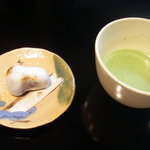
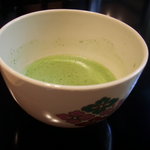
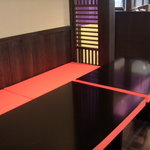
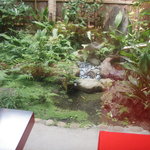
ひこっぺ
3.50

雅にゃん
4.00
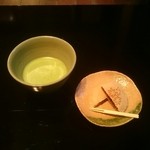
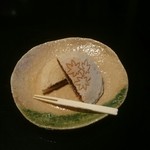

秀虎☆
0.00
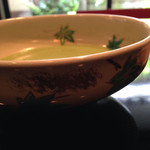
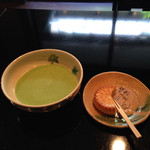
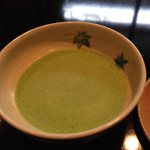
go_lady_go
4.80
Today's "Let's have a snack at home". My favorite tea shop in the world, well-known for Ayataka, collaborated with Kuradashi Harumatsu and Lotte to create a super collaboration ice cream, FamilyMart limited edition "Waffle Cone Umami Uji Matcha & Milk", priced at 258 yen. Delicious! It tastes just like the tea from Kuradashi with no bitterness! What's the name of the tea? Could it be Shirakashi from Komatsu? There is no typical ice cream sweetness or heaviness from the milk. Running out of ideas for takeout from nearby places, I reluctantly went to FamilyMart today, only to discover the best ice cream of the century! Since department stores in Tokyo where you can buy Kuradashi tea are all closed now, I'm enjoying a different tea shop's matcha with a sense of longing. Once this self-restraint period is over, I swear I will be the first to go to Uji!
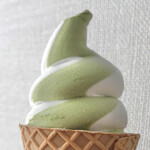
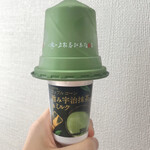
hisa19670320
4.80
★Old-established tea wholesaler in Kyoto and Uji★ Founded 450 years ago
Email Login